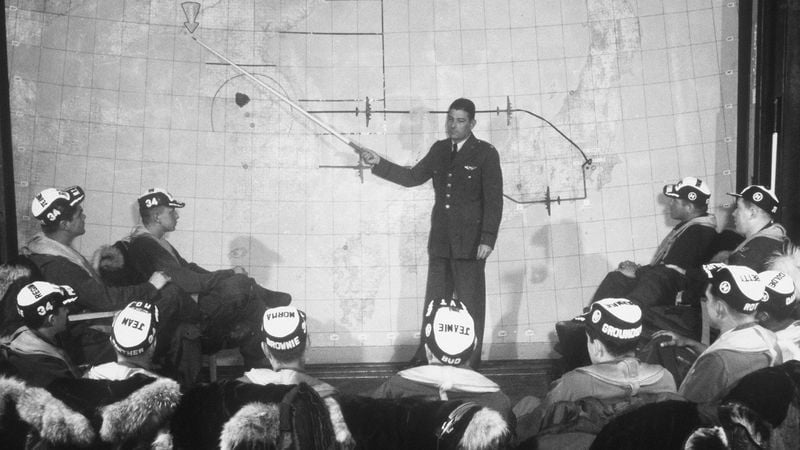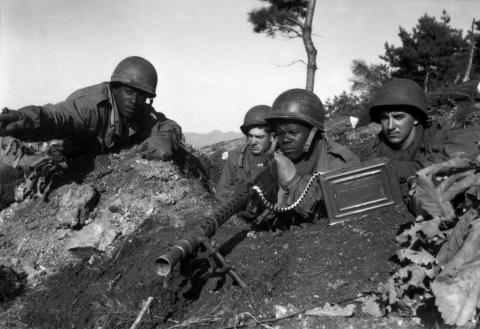Reference
:max_bytes(150000):strip_icc()/abomb-58cd1bb85f9b581d722e7f97.jpg)



OpenAI's Answer
Significant Outcomes of Atomic Diplomacy During the Korean War
Atomic diplomacy during the Korean War played a crucial role in shaping the conflict's trajectory and its resolution. Here are some significant outcomes:
-
Increased Leverage in Negotiations:
- Threat and Perception: The U.S. leveraged the threat of nuclear weapons to bring the North Korean and Chinese forces to the negotiating table. The use of nuclear weapons was seriously considered and even hinted at, creating a sense of urgency for a resolution.
- Stalin's Death: The death of Soviet leader Josef Stalin in March 1953 also contributed significantly to the flexibility in negotiations from the Communist side, coupled with the U.S. nuclear stance (Arms Control Association).
-
End to Hostilities:
- Diplomatic Efforts: President Eisenhower applied a mix of diplomatic, military, and nuclear strategies to push for an armistice. The Korean War ended in July 1953 with an armistice agreement, significantly driven by diplomatic pressures enhanced by the nuclear threat.
- Ceasefire Agreement: The ceasefire agreement established the Korean Demilitarized Zone (DMZ) and temporarily halted the military conflict, although a permanent peace treaty was never signed (Eisenhower Presidential Library).
-
Policy and Strategy Shifts:
- Nuclear Policy: The Korean War marked a significant point in U.S. nuclear policy, emphasizing the incorporation of nuclear weapons into conventional military strategy. This set a precedent for future conflicts during the Cold War, where nuclear weapons continued to serve as a diplomatic tool (Carnegie Endowment).
- Eisenhower's New Look: Post-war, President Eisenhower adopted the "New Look" defense policy, which relied on nuclear deterrence rather than conventional military forces, aiming to reduce military spending while maintaining robust defense capabilities (Miller Center).
-
Influence on Cold War Dynamics:
- Containment Policy: The effective use of atomic diplomacy during the Korean War reinforced the U.S. policy of containment against the spread of communism, influencing subsequent U.S. foreign policy and military engagements.
- Nuclear Proliferation Concerns: The Korean War highlighted the dangers and ethical considerations of using nuclear weapons, contributing to the ongoing international discourse about non-proliferation and the control of nuclear arsenals (Smithsonian Magazine).
These outcomes demonstrate the complex interplay between military strategy, diplomatic negotiations, and the overarching influence of nuclear weaponry during the Korean War. The presence of atomic diplomacy significantly impacted the war's resolution and subsequent Cold War policies.
Relevant Images
These images capture various aspects of the military and diplomatic environment during the Korean War, emphasizing the role of atomic diplomacy.
Follow Up
Related
What were the major scientific contributions in atomic and sub-atomic physics?
How does atomic force microscopy (AFM) contribute to force spectroscopy studies?
What is the role of a piezoelectric controller in atomic force microscope cantilevers?
What methods are used to apply paint in industrial and automotive settings?
